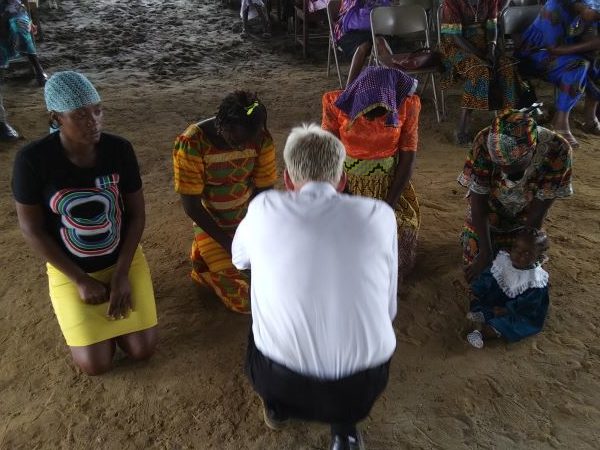Repentance Part 2
By Thomas Thorne
McDowell County
In last month’s article, we started by reading Acts 2:38, where Peter admonishes everyone to, “Repent and be baptized every one of you in the name of Jesus Christ for the forgiveness of your sins, and you will receive the gift of the Holy Spirit.” I then postulated that repentance is a necessary step toward forgiveness and the receipt of the Holy Spirit. We then reviewed three elements of repentance: Recognition of one’s sins as sins – recognition that sin is wrong, remorse and sorrow for our sins, and confession. We then considered that there are three more elements to full repentance:
- Stopping the wrong actions
- Forgiving
- Restitution if possible
“Stopping/desisting from” is neither a moral-intellectual analysis nor a feeling; it is an action. It is a ceasing from the sin, a desisting from the patterns of sinful action to which we have become addicted. Desisting from sin involves actually stopping the sinful action. To do so also involves consciously repressing thoughts and fantasies about the sinful activity, and making a firm commitment never to commit the sinful act again. This is serious and takes effort.
The last two elements, Forgiving and Restitution, are where things really get difficult sometimes, but are vital. You might say, “Where the rubber meets the road.” How many times have we heard it said, “I will never forgive that person” or something similar? What did Jesus say about forgiving? Amid the classic “Lord’s prayer” he tells us to pray to God, “Forgive us our debts, as we also have forgiven our debtors” (Matt. 6:12 ESV). Notice how this is worded, “as we also have forgiven (past tense) our debtors.” Two things stand out in this passage. First, it appears to be assumed that we have already forgiven our debtors. We are not walking around carrying grudges with chips on our shoulders, we have already forgiven others who have wronged us. In other words, forgiving is a natural pattern in our lives. When we have sinned against someone, we don’t delay. When it comes to our mind we ask forgiveness. Second, we can expect to be forgiven in like manner as we have forgiven others.
Then again, in Matthew 6:14-15 Jesus unequivocally says, “For if you forgive others their trespasses, your heavenly Father will also forgive you, but if you do not forgive others their trespasses, neither will your Father forgive your trespasses.” There can be no question that forgiving others accompanies repentance.
The last point I want to suggest for full repentance is restitution. Restitution is the act of making good, as best one can, for any damage done. If one has stolen, one must return the object or pay compensation. If one has damaged another’s reputation, one must attempt to correct the injury to the offended party. If we have let someone down with our speech or actions, we need to do our best to apologize and make it right.
The interrelationship between these steps is best described as a spiral that touches each of the six points yet advances with each turn. Thus, one may begin at any point–with recognition, remorse, confession, action-analysis-stopping, forgiveness, or restitution. However, as one repeats the steps again and again, one’s analysis and remorse deepen, one’s restitution and commitment to desist become firmer, forgiveness becomes deeper, and one’s confession becomes more profound.
As one cycles through these six phases, one’s repentance becomes more earnest. At the highest level, one achieves “full repentance,” which would require full consciousness and action such that, given the same situation, one would refrain from the sin for which one had repented.
Sinfulness is a very deep dimension of human existence and dealing with it calls upon all our spiritual, intellectual, emotional, and moral resources–and we need to recognize that ceasing to sin is the baseline of repentance.
Acts 2:38, “Repent and be baptized every one of you in the name of Jesus Christ for the forgiveness of your sins, and you will receive the gift of the Holy Spirit.”
Shalom Shalom everyone,
Tom Thorne








